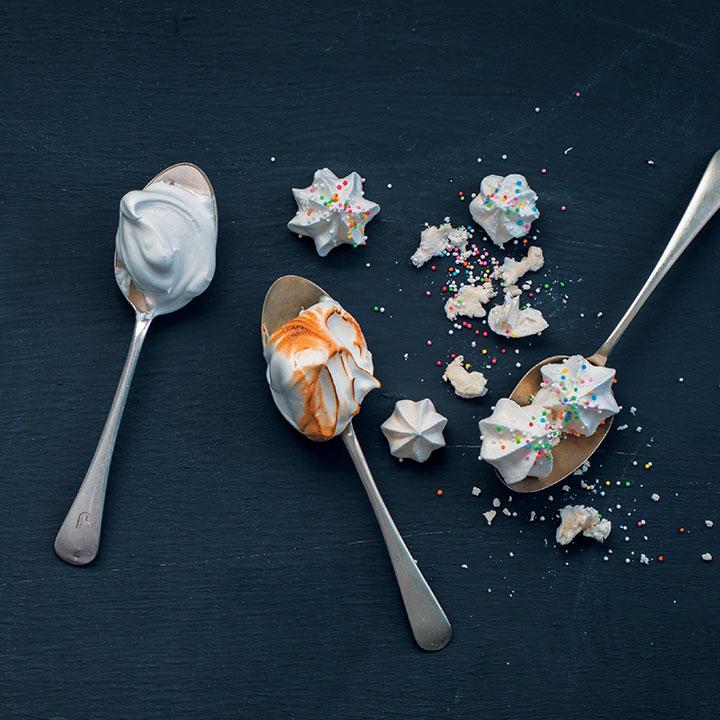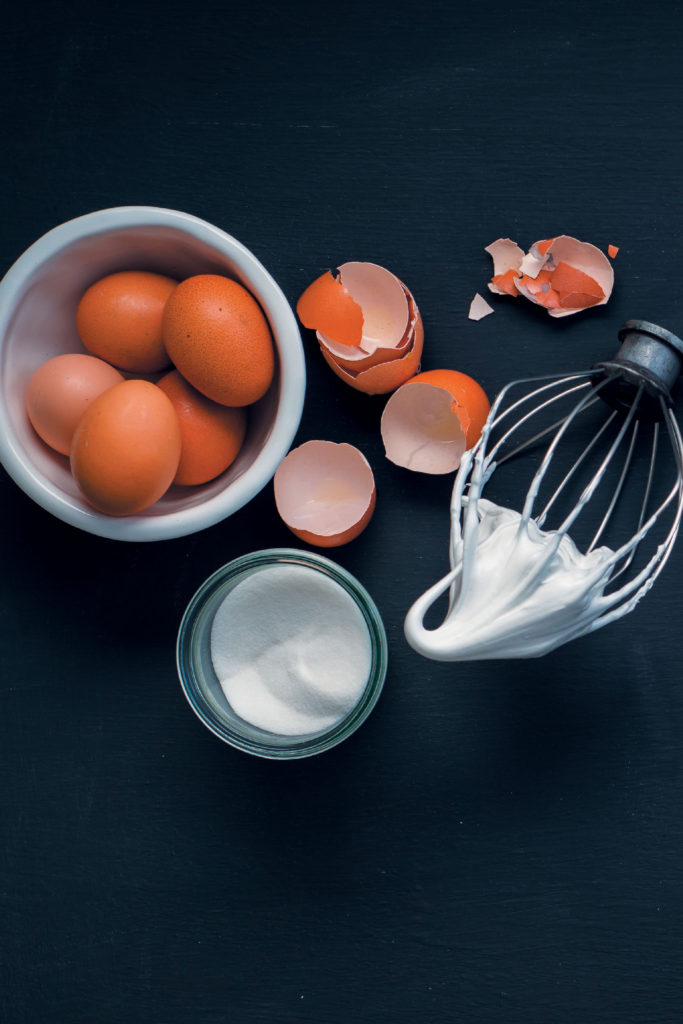Airy, light and sweet, who can resist meringue in any of its forms? We’ve put together a helpful guide explaining the difference between the three classic types of meringue – French, Swiss and Italian – along with some winning tips & tricks to perfecting each of these meringue recipes.
The 3 types of meringue
All three types of meringue are made by whipping together egg whites and sugar, but they differ slightly in their methods.
French meringue
French meringue has a light, crisp texture and is the easiest to bake and best-known type of meringue. Sugar is gradually added to stiffly whipped, uncooked egg whites until the whites form stiff shiny peaks. Either granulated- or castor sugar can be used; granulated will result in a crumbly, more granular meringue, while castor sugar will create a smoother finish. The meringue can be piped or dolloped into shapes and baked.
Learn how to make french meringue here, then try these rosewater meringue kisses once you’ve mastered the basics.
Swiss meringue
Swiss meringue is made by heating the sugar and egg whites together in a bowl over simmering water, whisking until the sugar is dissolved. The mixture is then whipped with an electric mixer until thick and glossy. Unlike French meringue, this meringue is extremely stable and is safe to use unbaked as a torched marshmallow topping. Swiss meringue is also often used as a base for buttercream icings.
Italian meringue
Italian meringue is made by gradually drizzling a ~118ºC hot sugar syrup into stiffly beaten egg whites. The sugar syrup is hot enough to cook the egg whites, making this meringue safe to consume unbaked as a torched, marshmallow-like topping. Italian meringue can be used in icings and, often, as a base for macarons.
Put it into practice: Mini chocolate sponges with coffee meringue icing; Zesty lemon and pistachio popsicles with gin Italian meringue
So in summary:
- FRENCH = sugar whipped into raw egg whites
- SWISS = sugar and egg whites heated together before whipping
- ITALIAN = hot sugar syrup whipped into raw egg whites
Note: Baked French meringues can be made ahead and stored in an airtight container for up to a week for best results. Swiss and Italian meringue should be made as and when needed, if being used in their unbaked forms.

Tips for success
- HUMIDITY: Meringues are quite sensitive to the weather – on rainy, humid days, they will absorb moisture from the air and turn soft and sticky very quickly. You’ll have more success making meringues when it is dry, otherwise you may have to bake them slightly longer.
- KEEP IT CLEAN: Make sure your utensils are all clean, grease-free and super dry. Any residual grease could affect how firmly your egg whites whip.
- ROOM TEMPERATURE: Use eggs at room temperature to get the best volume in your egg whites.
- START SLOW: Whip the egg whites at a slow speed initially and then gradually turn up the speed to reach firm peaks. This creates a stable egg white mixture with small, consistent air bubbles.
- EXTRA STABILITY: Some recipes add vinegar or cream of tartar to the meringue mixture. Although this isn’t 100% necessary, it can help to stabilise the egg white, ensuring that the meringue is thick, stiff and holds its shape.
- ADD THE SUGAR GRADUALLY: Gradually incorporate the sugar into the egg whites one tablespoonful at a time, beating well between each addition. This ensures that your meringue will deflate as little as possible.
- BAKING: Meringues are best baked at 100°C for 1 – 2 hours – this will ensure a crisp, perfectly dried-out result without any browning.
Styling and direction by Nomvuselelo Mncube; Photograph by Dylan Swart
Made one of these meringue recipes? Tag us @foodandhomesa #cookingwithFH on Instagram
ALSO SEE: Learn how to make vegan meringues with aquafaba
ALSO SEE: Blackberry, mascarpone & coconut meringue cake

